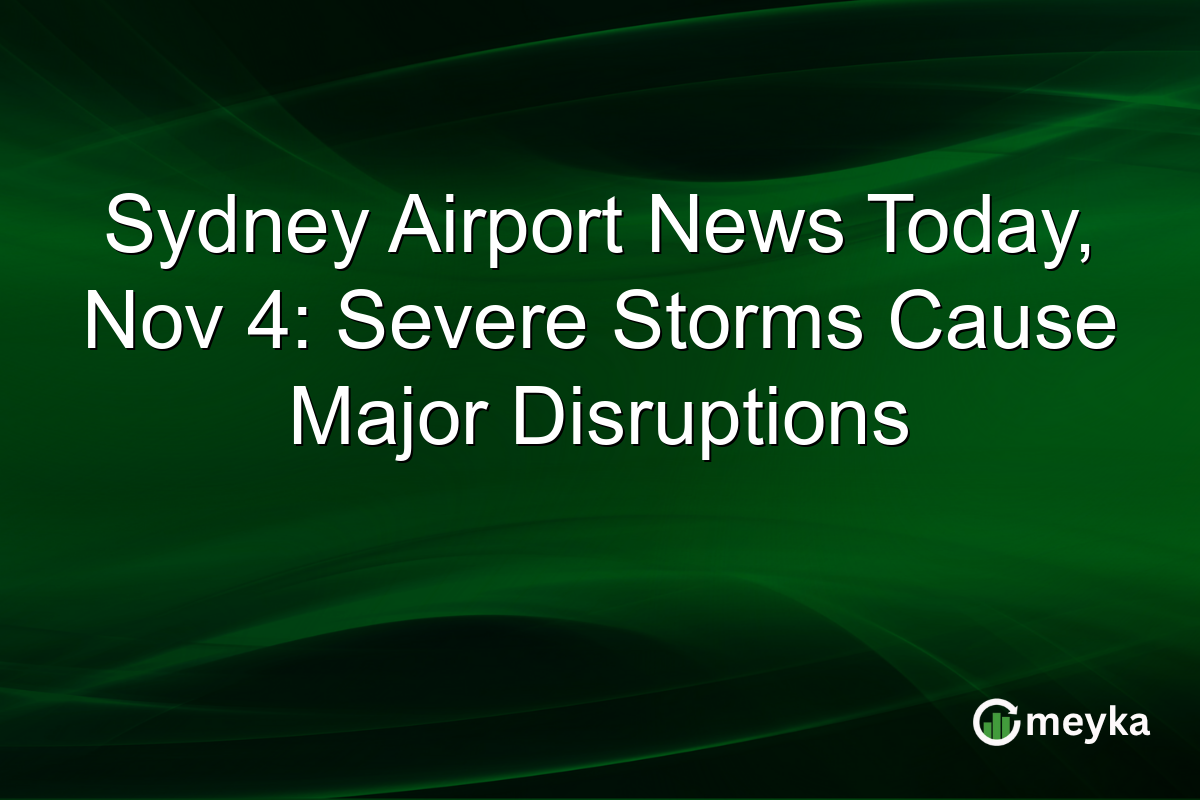Sydney Airport News Today, Nov 4: Severe Storms Cause Major Disruptions
On November 4, severe storms swept through Sydney, leading to significant disruptions at Sydney Airport. Flights faced delays and cancellations, affecting countless passengers. With intense weather conditions becoming more frequent, the resilience of airport infrastructure is under scrutiny. Understanding these disruptions helps highlight the need for robust crisis management strategies that prioritize passenger safety and efficient airline operations.
Continue Reading on Meyka
This article is available in full on our main platform. Get access to complete analysis, stock insights, and more.
Read Full Article →





